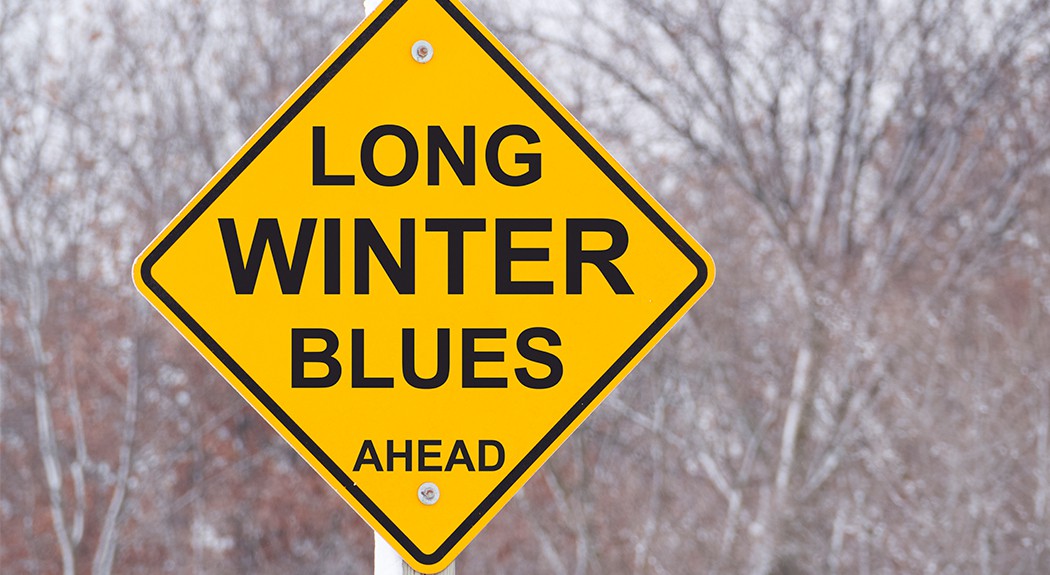Prevent SAD this season with Holistic Medicine
As we trudge deeper into the depths winter, many people experience some degree of mood change. We feel less motivated, sentimental, anxious or depressed. For some, these changes are slight and manageable; they may simply feel a bit more fatigued, have a harder time waking up in the morning, or occasionally feel bummed out. With the cold and grey weather, a lot of people opt to stay home, which can lead to feelings of isolation. Although Denver winters can be beautiful, sunny and full of outdoor activities like skiing, snowboarding, and winter hiking, we become more sedentary. Winter has a clear effect on us -- and our bodies respond to that change.
But for some people, the physical and emotional changes associated with the change in season can be much more difficult, and impede routine functions like work performance, good sleep habits and nutrition, social life, and keeping up with daily tasks. These symptoms are associated with emotional and physiological responses that are indicative of depression.
Seasonal Affective Disorder, also known as seasonal depression, winter depression, or SAD is indeed a form of depression. A diagnosis of SAD is given to patients who do not have depression during other seasons, and whose seasonal depression happens for at least 2 years in a row, and occurs more often each year than not. Many people who have depression during other times of the year find that their condition worsens during the winter - this is not strictly considered SAD according to the DSM-5 (the authoritative diagnostic criteria manual for psychological conditions).
The cause or trigger for seasonal depression is related to the photoperiod, or the number of hours between sunrise and sunset. Biologically, this impacts your circadian rhythms (your internal clock). Neurochemically, changes in the circadian rhythms of patients with SAD have diminished serotonin activity due to an increase in the levels of neurotransmitter protein called SERT.
Several diagnostic criteria are used to diagnose SAD.
Feeling of sadness or depressed mood
Marked loss of interest or pleasure in activities once enjoyed
Changes in appetite; usually eating more, craving carbohydrates
Change in sleep; usually sleeping too much
Loss of energy or increased fatigue despite increased sleep hours
Increase in restless activity (e.g., hand-wringing or pacing) or slowed movements and speech
Feeling worthless or guilty
Trouble concentrating or making decisions
Thoughts of death or suicide or attempts at suicide
Patients experiencing mood disturbances who have never otherwise been diagnosed with depression are often hesitant to voice their feelings to their loved ones, out of shame, embarrassment, or ridicule. They are even more resistant to discussing it with their doctor, often because they want to avoid the stigma of a diagnosis, or they do not want to be prescribed medication for depression. But there's no reason to be embarrassed - SAD is a real condition that affects up to 10% of people!
If you think that you have SAD, you're not alone. it's very important that you discuss it with a doctor - but how do you know what kind of doctor to choose? You may worry that a western doctor will write off your symptoms as "well, just that time of year." Or, they may prescribe you medication that you're not interested in taking or unwilling to take. Another option can be talk therapy - but many people with SAD don't have the time for the commitment of regular meetings with a therapist. You may benefit from seeing a psychiatrist, especially if your SAD is co-morbid (existing simultaneously) with other mental health issues or previous/active diagnoses.
Whether your SAD is relatively minor, and you can function reasonably well in your daily life, or you feel like you're really in a deep rut, seeing a functional medicine doctor for seasonal affective disorder is a great choice. Dr. Simone Sturm at Denver Holistic Medicine and her team holistically-minded practitioners are trained in the diagnosis and treatment of SAD. We will work with you as an individual, and carefully consider your personal situation in order to find the best method of treatment for you. We will work with your towards developing a treatment plan that addresses your symptoms and can help prevent relapses. Most importantly, we won't pressure you into any particular type of treatment - we respect your agency and right to autonomy in your healthcare.
Some of the holistic treatment methods for depression include taking specialized and tailored herbal supplements to boost your mood, energy, and regulate your appetite so that you do not gain or lose weight unintentionally. We may prescribe light therapy for you, in order to balance your circadian rhythm and restore your neurotransmitter functions to normal. These types of treatments, among others, can (if needed)be supplemented with traditional anti-depressant medication. We want to help you get back to living in a state of internal sunshine - even when the snow and temperatures fall in Denver!

